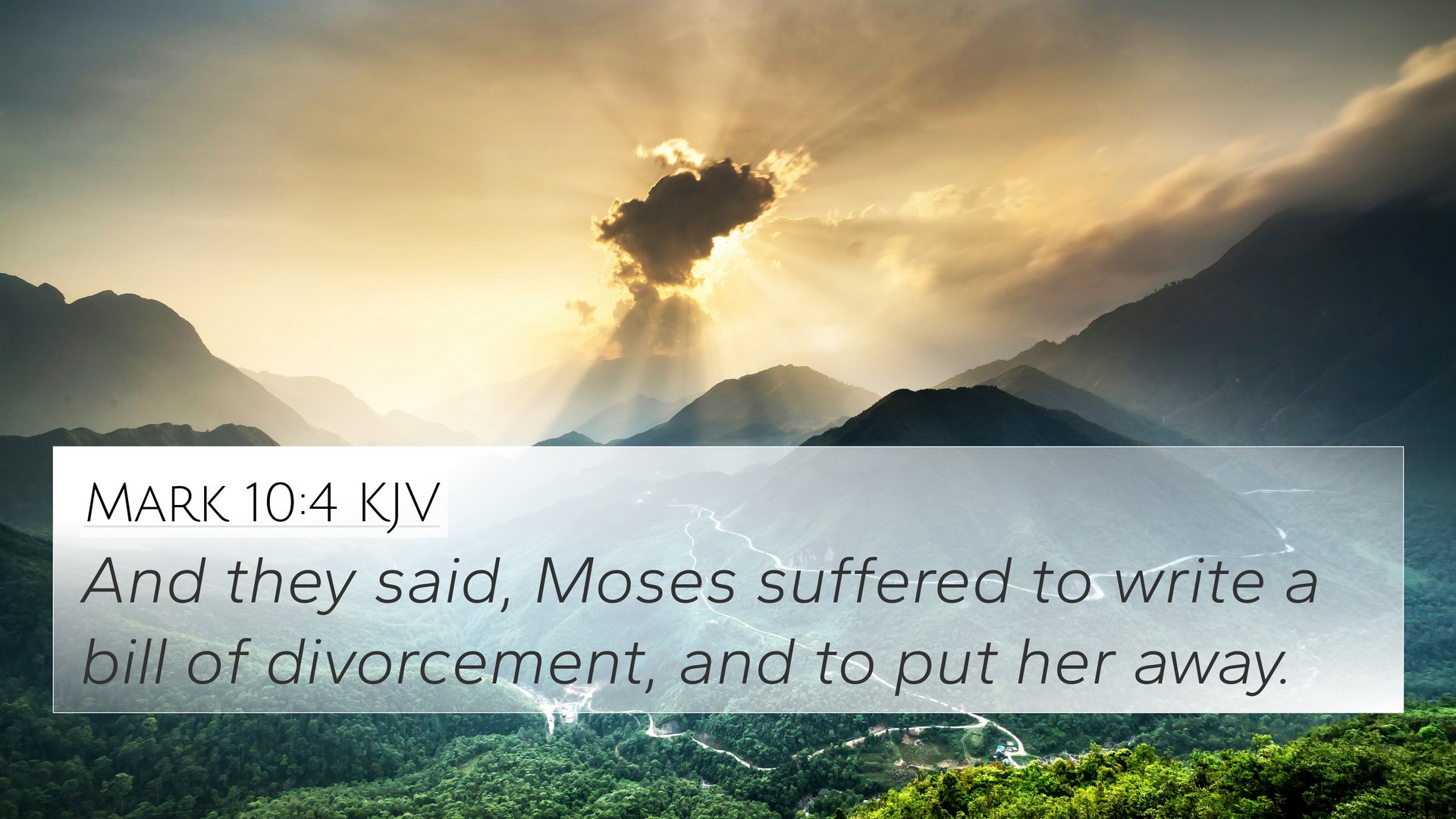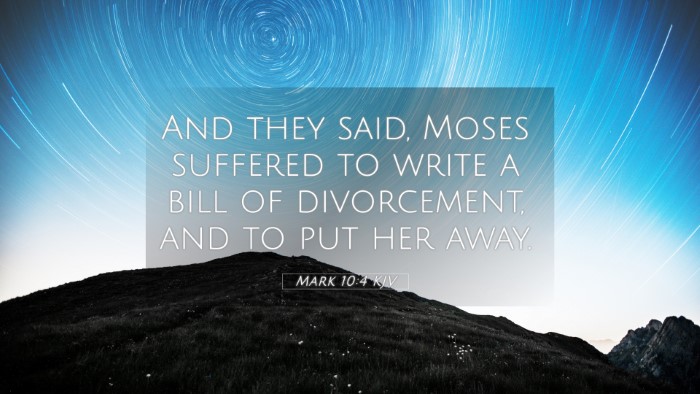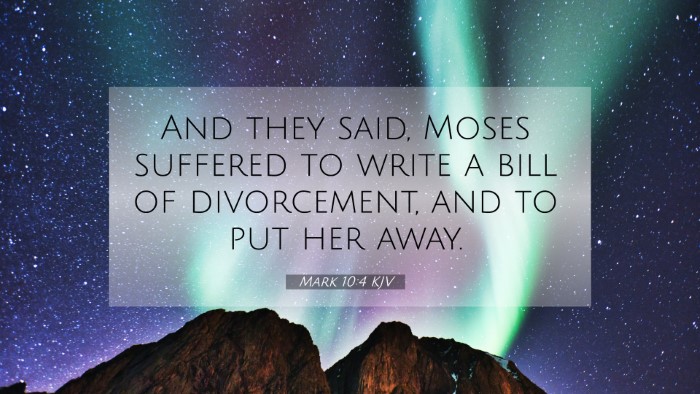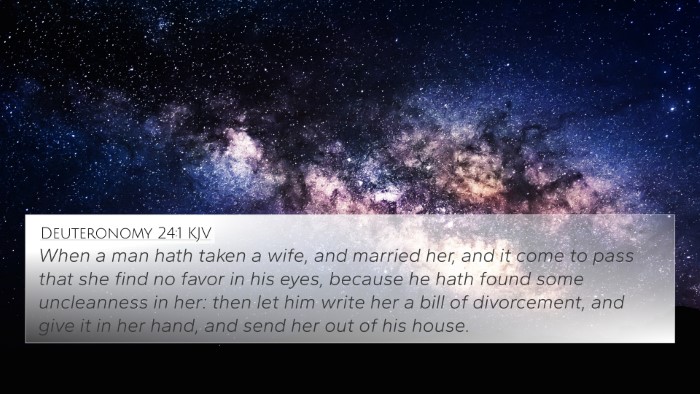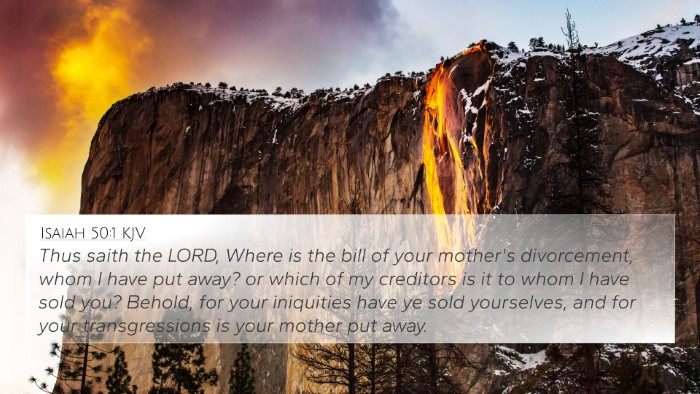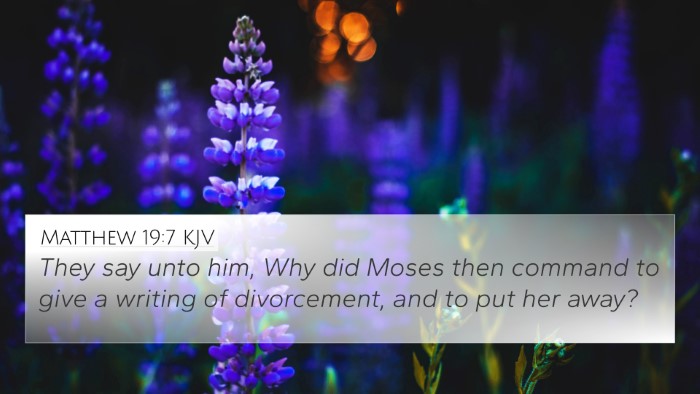Understanding Mark 10:4
Mark 10:4 states: "And they said, Moses allowed a man to write a certificate of divorce, and to put her away." This verse is part of a larger discourse where Jesus addresses the topic of marriage and divorce, which carries significant theological implications and moral teachings.
Contextual Meaning
This statement is made in response to a question posed to Jesus by the Pharisees about the lawfulness of divorce. They reference Moses' allowance for divorce as a way to challenge Jesus and to probe His understanding of the law. It highlights two key areas: the interpretation of the Mosaic Law concerning divorce and the moral and ethical implications of such practices.
Commentary Insights
- Matthew Henry: Henry emphasizes that the Pharisees' reference to Moses demonstrates their legalistic approach. They focus on obtaining a certificate of divorce rather than considering the sanctity and commitment of marriage as ordained by God. This practice had become a mere formality, losing sight of the original intention behind marriage.
- Albert Barnes: Barnes notes that while Moses permitted divorce, it was not prescriptive, and Jesus seeks to illustrate that the ideal, as established at creation, is a lifelong union. He emphasizes that the heart of the issue is the hardness of human hearts, leading to such regulations to allow for the social order.
- Adam Clarke: Clarke indicates that the permission granted by Moses was a concession to the people's hardness and not an endorsement of divorce as a norm. He argues that the elevation of marriage to a sacred status is central to Jesus' teaching, urging a return to the foundational principle of marriage as a divine covenant.
Biblical Cross-References
Mark 10:4 connects with several key verses that deepen our understanding of divorce and marriage in a biblical context:
- Matthew 19:7-9: Jesus elaborates further on the topic, affirming that divorce was permitted due to the hardness of hearts, but reiterating that it was not God's intention from the beginning.
- Genesis 2:24: This foundational verse reveals God's design for marriage, stating that a man shall leave his father and mother and be joined to his wife, emphasizing unity.
- Malachi 2:16: Here, God declares His hate for divorce, emphasizing the sanctity and covenantal nature of marriage.
- 1 Corinthians 7:10-11: Paul provides further instruction regarding marriage and divorce, reinforcing Jesus’ teachings and encouraging spouses to remain committed.
- Ephesians 5:31: This passage quotes Genesis and highlights the mystery of the marital relationship in relation to Christ and the church.
- Romans 7:2-3: Paul discusses the binding nature of marriage and how it can only be broken by death, illustrating the permanence of the marital vow.
- 1 Timothy 3:2: This verse outlines the character of church leaders and emphasizes the importance of being the husband of one wife, further indicating the calling to fidelity in marriage.
Theological Implications
The conversation about divorce in Mark 10 invites readers to reflect on the broader themes of grace, redemption, and the transformative nature of Christ's teachings. As Jesus redirects the focus from legal allowances to the heart's intentions, believers are encouraged to pursue relationships that mirror the covenantal love exhibited by Christ.
Final Thoughts
The complex issue of divorce as discussed in Mark 10:4 invites believers to thoughtfully engage with biblical texts and their implications for contemporary life. By employing bible verse cross-references and studying connections between Bible verses, readers can develop a nuanced understanding that resonates with the core messages of love, commitment, and faithfulness as established in biblical teachings.
Further Study Tools
For those interested in exploring these themes further, various tools for Bible cross-referencing such as a Bible concordance or Bible cross-reference guide can facilitate a deeper study. These resources provide a framework for understanding the intricate thematic Bible verse connections and inter-Biblical dialogue present throughout Scripture.
